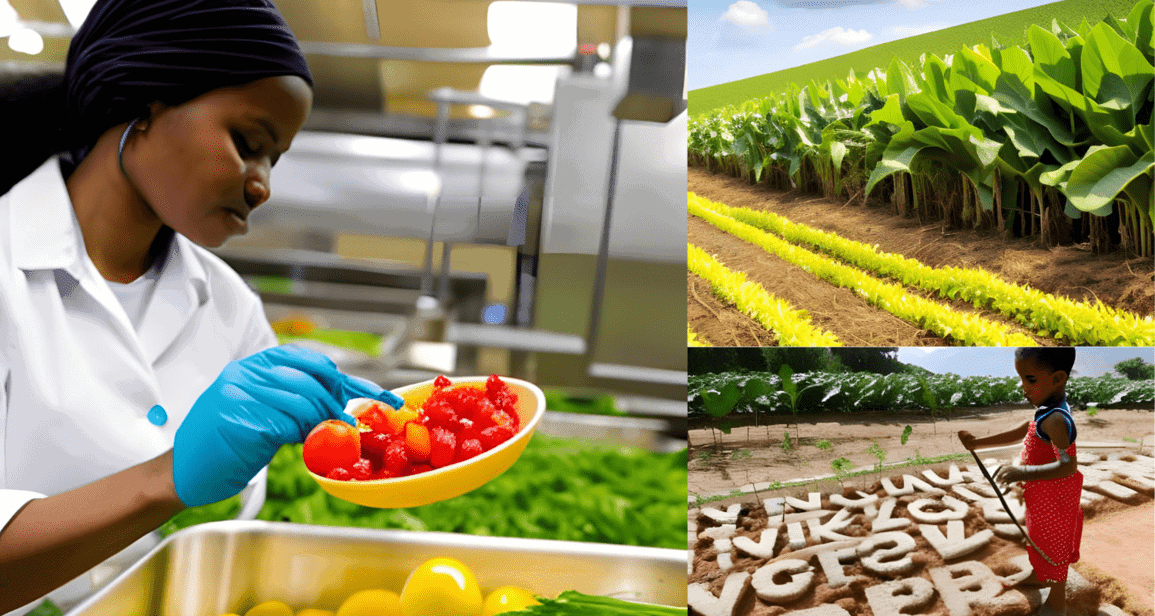- Phone: 306-970-1552
- connect@gentleprocessing.ca
- 18-301 South Industrial Dr. Prince Albert, SK S6V 7L7, Canada

In today's fast-paced world, where time is of the essence, food processing has emerged as a pivotal industry that plays a crucial role in global health initiatives. The link between food processing and addressing malnutrition might not be immediately evident, but as we delve deeper, it becomes clear that food processors hold the key to combatting malnutrition and improving overall health worldwide.
Before we dive into the impact of food processing on global health, it's essential to understand the evolution of this industry. Food processing has come a long way from traditional methods of cooking and preservation. With advancements in technology and food science, it has become a sophisticated field that involves various techniques to transform raw ingredients into safe, nutritious, and convenient food products.
One of the most significant contributions of food processing to global health is the practice of fortification. Fortification involves adding essential vitamins, minerals, and nutrients to food products during the processing stage. This simple yet powerful technique can have a profound impact on addressing malnutrition, especially in regions where access to a diverse and balanced diet is limited.
Micronutrient deficiencies, such as vitamin A, iron, and iodine deficiencies, are prevalent in many parts of the world, particularly in developing countries. Food processors have taken on the responsibility of fortifying staple foods like rice, flour, and cooking oil with these vital nutrients. This approach helps bridge the nutrition gap and reduces the incidence of diseases caused by micronutrient deficiencies, such as night blindness and anemia.
Beyond fortification, food processors are continuously working on enhancing the nutritional value of their products. They employ innovative techniques to retain the maximum nutrients in food while ensuring safety and shelf-life. This commitment to nutrition extends to both processed and packaged foods, making it easier for consumers to make healthier choices.
In our fast-paced lives, convenience often dictates our food choices. Food processing has played a pivotal role in making nutritious foods more accessible and convenient for people from all walks of life.
Ready-to-eat meals and snacks have become staples in many households. These products undergo rigorous quality control measures to ensure they meet nutritional standards. They provide a convenient solution for busy individuals and families, helping them maintain a balanced diet even in hectic schedules.
Food processing techniques, such as canning and freezing, extend the shelf life of perishable goods. This not only reduces food wastage but also ensures that people have access to nutritious foods for more extended periods. It's especially crucial in regions with limited access to fresh produce.
Food processing also plays a critical role in global food security. By optimizing production processes, reducing food wastage, and enhancing preservation techniques, the industry helps stabilize food supplies worldwide.
Food losses occur at various stages of the supply chain, from harvest to consumption. Food processors employ strategies to minimize these losses, ensuring that more food reaches the plates of those who need it most. This has a direct impact on global food security, especially in times of crisis.
The global population is steadily increasing, and with it, the demand for food. Food processing helps meet this growing demand by efficiently producing, packaging, and distributing food products to various regions, even in remote areas.
In conclusion, food processing is not just about convenience and taste; it's a vital tool in addressing malnutrition and improving global health. Through fortification, convenience, and a commitment to food security, food processors contribute significantly to the well-being of individuals and communities worldwide. As we move forward, it's crucial to support and promote this industry's efforts in making nutritious, safe, and accessible food a reality for everyone.